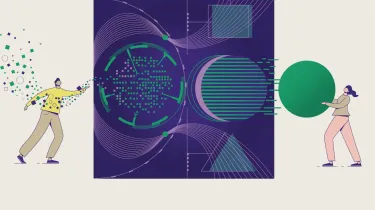Machine Learning
Machine Learning is a central subfield of artificial intelligence. Many digital applications in our daily lives use machine learning: spam filters sort out unwanted emails, streaming services recommend suitable content, and voice assistants respond to spoken requests. In all these cases, the systems use large amounts of data to recognise patterns and derive decisions from them.
Discover now on the AI Campus how different algorithms and learning methods work, what they are suitable for, and how you can use them in a targeted way.

Foundations of Deep Learning I: Basics
Machine Learning and Deep Learning with IBM
Holistic applied AI in engineering – launch of the micro-degree
Machine Learning at School
Data Literacy
Introduction to Machine Learning - Start of the Micro Degree
Introduction to Machine Learning

Omar Eladawy is an AI Trainer at appliedAI Initiative GmbH. His prior positions include AI Engineer at VoiceLine GmbH and Visiting Student Researcher at the Designing Education Lab at Stanford University. With this unique blend, Omar’s experiences bridges Tech, Education and Product. He has been trained in Electrical Engineering and Information Technology.





